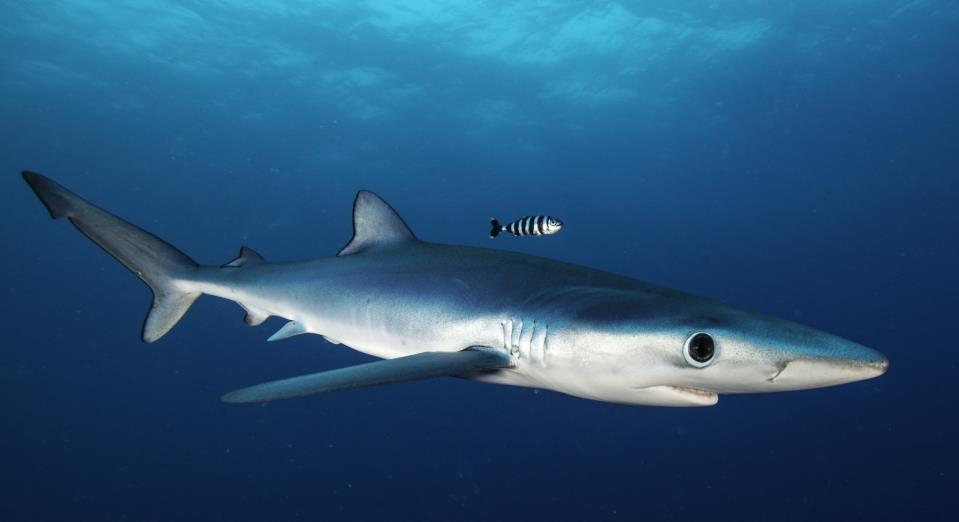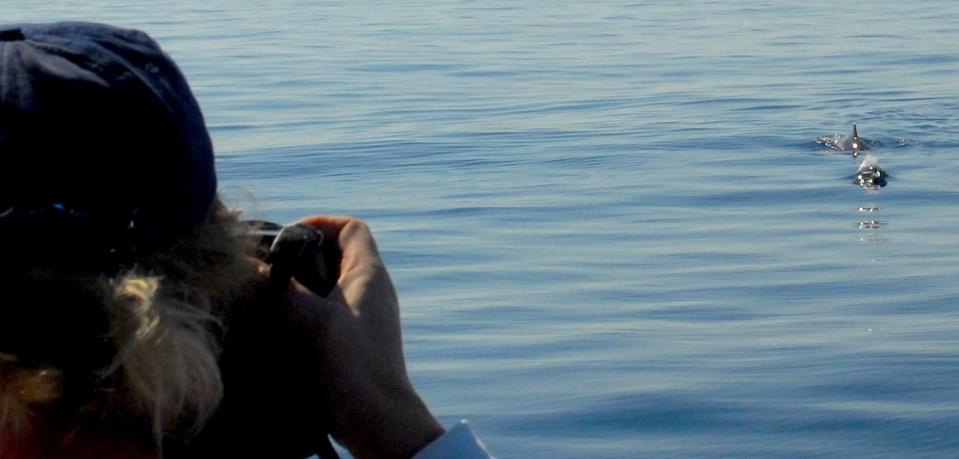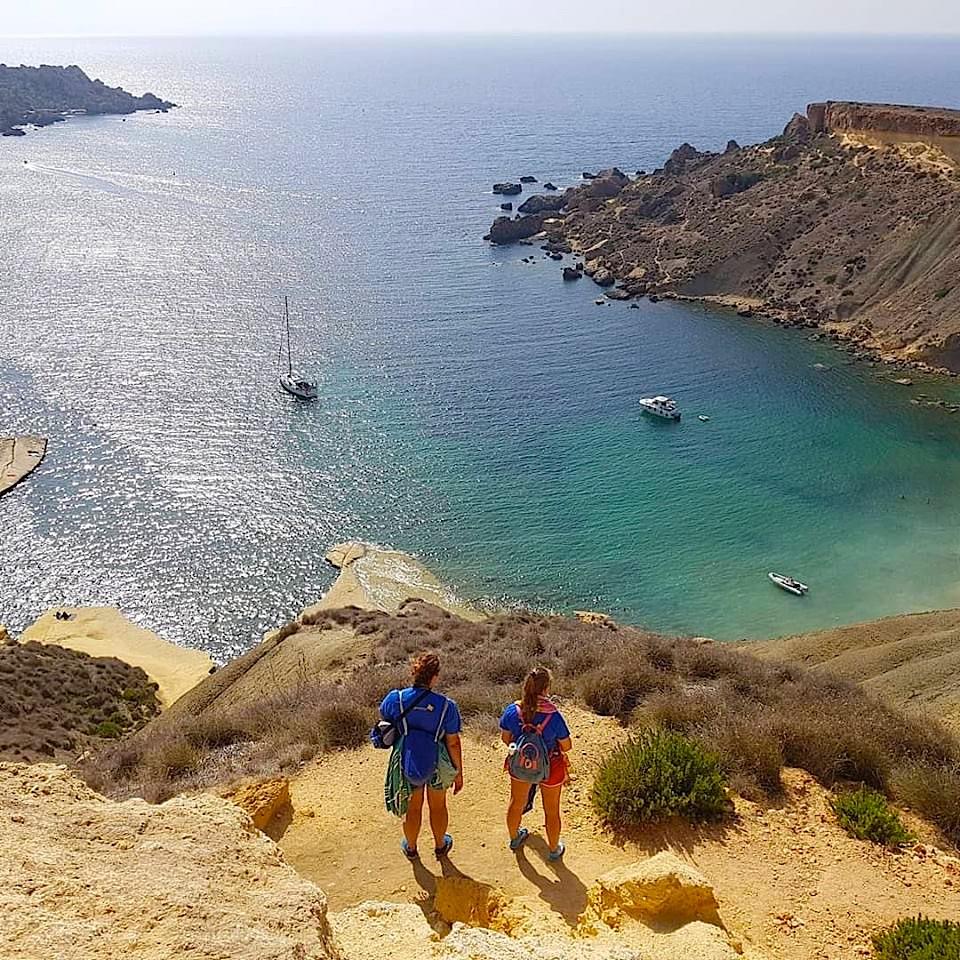The COVID-19 pandemic may help people understand what it is like for marine species to suffer from their own pandemics due to viral infections that can dramatically impact whole populations, said Conservation Biologist and researcher Professor Adriana Vella.
Over the past month, social media has been flooded with videos of dolphin sightings across our shores, which have raised the question on what effect COVID-19 measures are having on marine life.
Monitoring our seas to check what changes are detected and how we can improve biodiversity conservation and the goods and services marine life provides is part of the research routine of the Conservation Biology Research Group of the University of Malta (CBRG-UM), led by Prof Vella.
With over 25 years of experience in marine conservation and field research that spans coastal to offshore waters, Prof Vella has contributed to Malta being put on the map for various discoveries and conservation projects of international repute.
This experience has also allowed this research group to partner with European projects focusing on cetaceans and their role as indicators of the health of the sea. One such project is the QuietMED projects that have seen Adriana and her research group active in monitoring Maltese waters using state-of-the-art acoustic recording devices to measure the noise levels and cetacean presence.
Interviewed by The Malta Independent on Sunday, Prof Vella explained the reasons behind this behaviour and what the future holds for marine life, which forms an important part of our ecosystem and climate control.
COVID-19 measures and their impact on marine life
Dolphin and whale species have been studied through scientific dedicated aerial and marine surveys by Prof Vella, pioneering such large and long-term research project on cetaceans in Maltese waters since 1997. This project is also one of the few in the Mediterranean to have sustained such work in different seasons of the year beyond the summer months. Most of this work was done by the researcher herself, later joined by increasing numbers enthusiastic BICREF NGO volunteer members and interns.
Prof Vella explained that marine life is affected by noise and other forms of pollution, seasonal diversity of prey abundance and its distribution, increasing anthropogenic disturbance; such as touristic dolphin watching that in many parts of the world have altered the natural behaviour of these animals. Globalisation, unlimited mass tourism and climate change have also increased pressures on marine life.
“The recent reduced vessel traffic around the Maltese islands has consequently lowered noise pollution affecting the distribution of prey and predators in our waters. On finding cleaner and less noisy waters, marine life was not hindered to get closer to our shores as has also been found in other parts of the Mediterranean,” she said.

Nonetheless, she pointed out that coastal approaches are not rare even for dolphins that have been spotted in harbours and close to shore throughout the years of research – even whales have been sighted in harbours for short visits.
The problem that research is facing during the current COVID-19 crisis is conducting human led field monitoring. “From this experience we have learned that risk assessments, monitoring and enforcement especially of marine life have become more difficult, as it cannot be all done online, therefore, sustained detection and responses to any incident are limited.”
Having said that, there is still ongoing conservation research at the CNRG-UM which has developed additional tools to aid detailed and accurate scientific knowledge on marine species and their populations using molecular genetics as well.
“Understanding the needs and problems faced by endangered marine species, including large predators, such as sharks and dolphins, is not easy and at times poorly appreciated, as far from sight is far from mind for many. Making sure marine life is allowed to grow undisturbed and exploited very carefully is no long a voluntary choice but an urgent need,” Prof Vella explained.

This pandemic may shed light on things we usually take for granted
Prof Vella clarified that marine species are no different from species we find on land and the more stressed they are due to the many changing and unfavourable conditions in their environment the greater the chance of sickness and death.
She used the various episodes of cetacean morbillivirus epizootic occurrences in the Mediterranean as an example, which were responsible for many dolphin die-offs reported since the 1990s. Such episodes have also been noted all around the world.
“Passing through a pandemic, we may all understand and appreciate what it means for marine species to suffer from their own pandemics due to viral infections that can dramatically affect whole populations and decrease numbers of a species close to extinction; or to be confined in a very limited part of its potential home range because of increasing human disturbance and exploitation,” she explained.
Globalization has dramatically affected marine life as well, with large vessels travelling long distances and carrying with them species and diseases that are then transferred to different parts of the world with spreading of alien species and diseases affecting native species dramatically. The CBRG-UM has many scientific reports of alien species in Maltese waters from small invertebrates to large fish that affect native species and artisanal fishermen, such as the pufferfish and lionfish.
To exacerbate this dangerous situation, the degradation of all marine habitats and the impact of climate change will affect marine life in many more ways.

She also touched on the economic aspect of marine life, making reference to a recent outcome from an assessment made by a famous economist on the economic value of a whale.
“You may be surprised to know that it amounted to at least $2 million worth in ecosystem services. Additionally, a single whale with its long-life span may sequester carbon dioxide equivalent to 1500 trees thus massively helping against the causes leading to climate change!”
In light of this, economic models based on globalisation are now also being reconsidered and remediated after the pandemic experience.
“Mankind may come out of the Covid-19 pandemic experience renewed and cautioned on how vulnerable it really is and dramatically change its ways for the better giving more attention to things it took for granted,” Prof Vella stated.
“So while we may enjoy seeing some dolphins jump out in the air to breath and play, may we remember about their real needs and the needs of all the other marine species they represent,” Prof Vella emphasised. “They form an essential living network of mechanisms without which life in our seas and this world as we know it will end.”
BICREF provides a volunteer reporting system that allows any interested person to help in reporting both local and alien marine species in their website and the data is supporting on-going conservation research which is underfunded.
This NGO and the University’s Conservation Biology Research Group attract volunteers and interns from all over the world to aid in local conservation research and awareness. Maltese volunteers are also welcome to assist in various ways.
For further information, contact:
Prof. Adriana Vella: [email protected]
BICREF: [email protected]